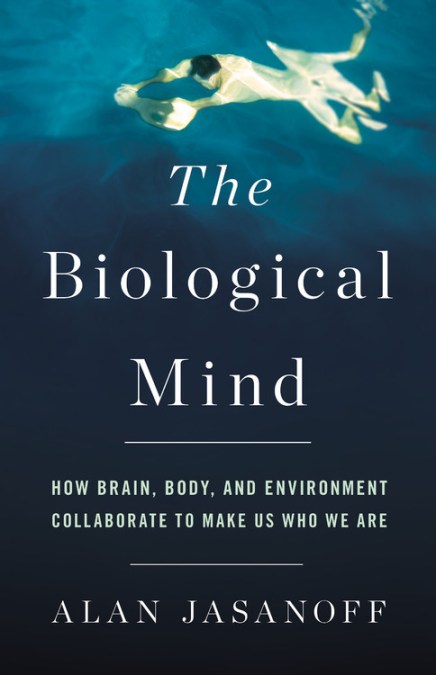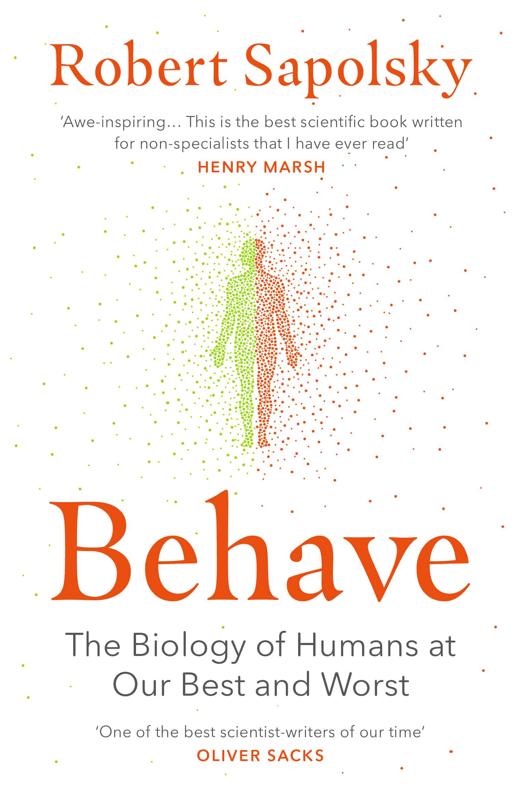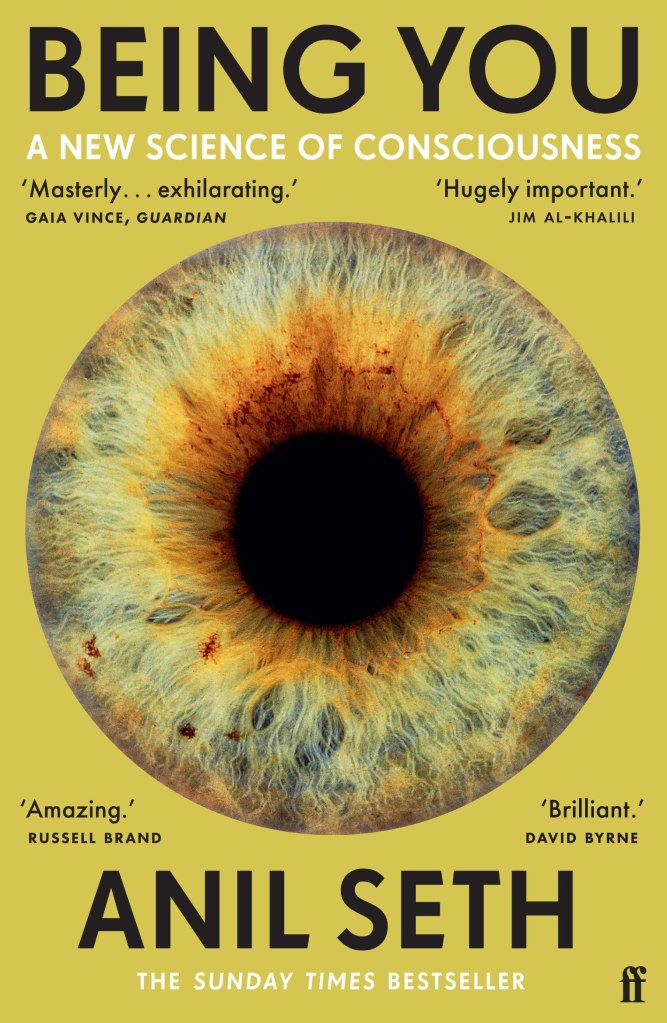If a group of people is made to march in synchrony with one another, then they will subsequently stand closer together for a group photo than a group of people who marched asynchronously. If people row synchronously in a group, then they will subsequently have a higher pain threshold than a group of people who rowed asynchronously. Stone age group rituals including singing, dancing, and chanting may have furnished benefits both to individuals and tribes. The resulting visionary experiences may have, over time, evolved into doctrinal religions, co-opted by states and political entities following the adoption of agriculture and the emergence of settlements in the Upper Palaeolithic. Deep rooted instincts entrain today’s formal religions. Hymns, carols, and communion multiply the cohesion of a group and society in a way that is deeply human.
‘This feels more like spin-the-bottle than science’: my mission to find a proper diagnosis – and treatment – for my son’s psychosis.
This Guardian article tell the story of a mother’s experience with her son’s schizophrenia, and how the drug treatment he received was worse than the illness. It also describes a much more humane treatment programme – Open Dialogue – exists in Finland.
I recall the way his shoulders slumped when I held out the pills and a glass of water to him each day. “They make me feel emotionally numb,” he said. “I can’t live like this.” One evening he pushed the drugs back at me, held the water glass to my chin and said: “If they are that great, why don’t you take them?”
Being You, by Anil Seth
How do self-awareness and consciousness arise from the meat computers in our heads? This is the so-called “hard problem”, which has long been considered intractable. Anil Seth argues that empirical methodology is chipping away at the foundations of the hard problem, and that Psychology is beginning to make real progress towards answers.
He starts by by examining how modern magnetoencephalograpy can yield an operationalised and quantifiable metric of brain activity which appears to accompany conscious experience, and continues to argue that perceptual inferences driven by Baysian logic may be identical to, and responsible for, consciousness. If true, this would mean that animals are conscious, and that AIs aren’t.
This book was published in 2021 and created quite an impact. It contains some very advanced thinking about the science of consciousness, and it is the first time anyone has attempted to make these ideas accessible for a popular audience. It is very readable and not too long, but the ideas it articulates are mind-bending, and worth reading slowly and more than once!
Consciousness in the Cosmos, by Thomas Newton.
This New Scientist article explores new thinking around the Hard Problem: how does our subjective experience of consciousness emerge from inanimate matter? Some theoretical physicists think that we may be asking the wrong question.
The article examines these ideas:
Panpsychism: consciousness is an intrinsic property of all matter.
Emergence: consciousness arises from holistic properties of complex systems.
The causal theory of views: that the laws of physics, and the experience of consciousness, arise from a network of subjective perspectives on the universe.
New Scientist No. 3380, 2nd April 2022, p. 38-41.
Seth Grant Explores the Synaptome.
If you believe the A-level textbooks, then the synapse is a simple junction between nerve cells, which is either excitatory or inhibitory. In this podcast with Ginger Campbell MD, Seth Grant explains that the diversity of proteins in synapses makes each one unique, and more like a mini-computer.
I heartily recommend all of the Brain Science Podcasts, they give a really insightful perspective on recent developments in the field. Especially useful for anyone considering an application for Cognitive Neuroscience.
https://brainsciencepodcast.com/bsp/2018/150-grant-synaptome
The Case Against Reality, by Donald D Hoffman.
Donald Hoffman takes us down a very deep perceptual and cognitive rabbit hole, and makes a mind-bending claim: consciousness is more fundamental than physical “reality”. Using arguments from evolution, psychology, and physics, he says that perceived objects are nothing more than icons on our mental desktops, and that reality is virtual.
You will enjoy this book if you enjoy big philosophical questions, and also if you are interested in the physical sciences.
People I Mostly Admire: Robert Sapolsky. “I Don’t Think We Have Any Free Will Whatsoever.”
This podcast is a quick ramble through the work of one of the greatest living psychologists: Robert Sapolsky. He talks about his work with baboons, stress in humans, and the biological origins of violence. He also touches on wider issues: free will, and the criminal justice system. He likens today’s criminal justice system to the mediaeval practise of exorcising people with epilepsy, based on the belief that they were possessed by demons.
Everyone applying to university to do Psychology should know about the work of Robert Sapolsky. He’s a bright academic star, who has something really relevant to say about behaviour, and wider societal issues. He’s also not covered on the A level syllabus, so if you show that you know about his work, you are demonstrating a wider interest in the subject which will support your UCAS application.
If you like this podcast, you should also definitely read Behave by the same author.
The Biological Mind, by Alan Jasanoff.

This book argues against “Cerebral Mystique”: the idea that the brain is a different kind of organ than any other in the body. Cerebral mystique emphasises free will, mind body duality, and leads some people to pay to freeze their brains after their death, in the hope that they will be reincarnated in the future when medial science allows. Jasanoff argues that our brains can only be understood as biological organs embedded in a living body, and that our mind and consciousness are embodied in our our whole bodies, and even our environment.
This book is very readable, and as well as promoting Alan Jasanoff’s ideas, it also provides a very accessible review of some elements of biopsychology and neuroscience, which will be interesting for anyone thinking of of applying to university for a course which emphasises these sides of Psychology.
Behave, by Robert Sapolsky.
 I read this book during lockdown, and it is now my number one recommendation for A-level students who are interested in Psychology.
I read this book during lockdown, and it is now my number one recommendation for A-level students who are interested in Psychology.
Robert Sapolsky has spent a lifetime studying the biology of human behaviour, and this book explains the multiple overlapping explanations for our actions, starting with nervous impulses in the brain. He covers childhood, cultural, and evolutionary influences, and explains the interactions between them.
Sapolsky has an astonishing depth and breadth of knowledge, which shines through his writing. He also illustrates his ideas with very accessible personal and political stories, which make the book very readable. One really impressive thing about his book is the way that he stands back and views the big picture of human behaviour, and is clear and precise about the way that cognitive, biological, and sociological ideas are actually all part of the same system.
This book is a really impressive piece of work and you should read it straight away.
The Myth of Freedom, by Yuval Noah Harari.
An article by the author of 21 Lessons for the 21st Century on Free Will, in which Harari explores the political consequences of the scientific consensus that free will is illusory. He argues that we would be better thinkers if we came to terms with the fact that we don’t have free will.
Harari holds that if we grip on to our belief in free will, it makes us too selfish. We are constantly focussed on ourselves. If, on the other hand, we accept that we are slaves to the stimuli around us, then we focus on those instead. “It is like when you have a conversation with someone. If you focus on what you want to say, you hardly really listen. You just wait for the opportunity to give the other person a piece of your mind. But when you put your own thoughts aside, you can suddenly hear other people.”
“Governments and corporations will soon know you better than you know yourself. Belief in the idea of free will has become dangerous.”
“How does liberal democracy function in an era when governments and corporations can hack humans? What’s left of the beliefs that ‘the voter knows best’ and ‘the customer is always right’? How do you live when you realise that you are a hackable animal, that your heart might be a government agent, that your amygdala might be working for Putin, and that the next thought that emerges in your mind might well be the result of some algorithm that knows you better than you know yourself?”
The Myth of Freedom, by Yuval Noah Harari.
The Guardian, Saturday 15th September 2018, Review p. 32-35


